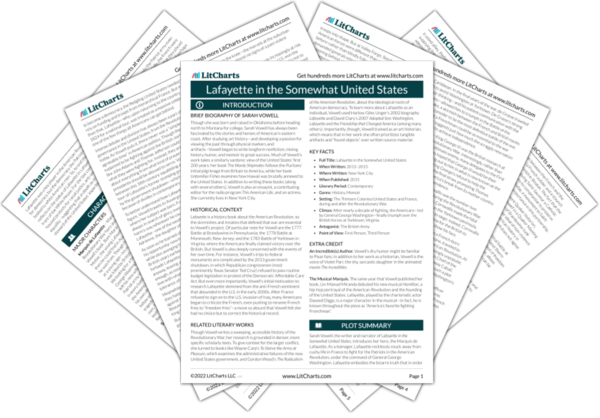Count de Vergennes Quotes in Lafayette in the Somewhat United States
Because these words convinced Louis XVI to open his heart and, more important, his wallet to the patriots, Vergennes’s memo arguably had as much practical effect on the establishment of American independence as the Declaration of Independence itself. Jefferson’s pretty phrases were incomplete without the punctuation of French gunpowder.

Unlock explanations and citation info for this and every other Lafayette in the Somewhat United States quote.
Plus so much more...
Get LitCharts A+
Count de Vergennes Quotes in Lafayette in the Somewhat United States
Because these words convinced Louis XVI to open his heart and, more important, his wallet to the patriots, Vergennes’s memo arguably had as much practical effect on the establishment of American independence as the Declaration of Independence itself. Jefferson’s pretty phrases were incomplete without the punctuation of French gunpowder.

Unlock explanations and citation info for this and every other Lafayette in the Somewhat United States quote.
Plus so much more...
Get LitCharts A+








